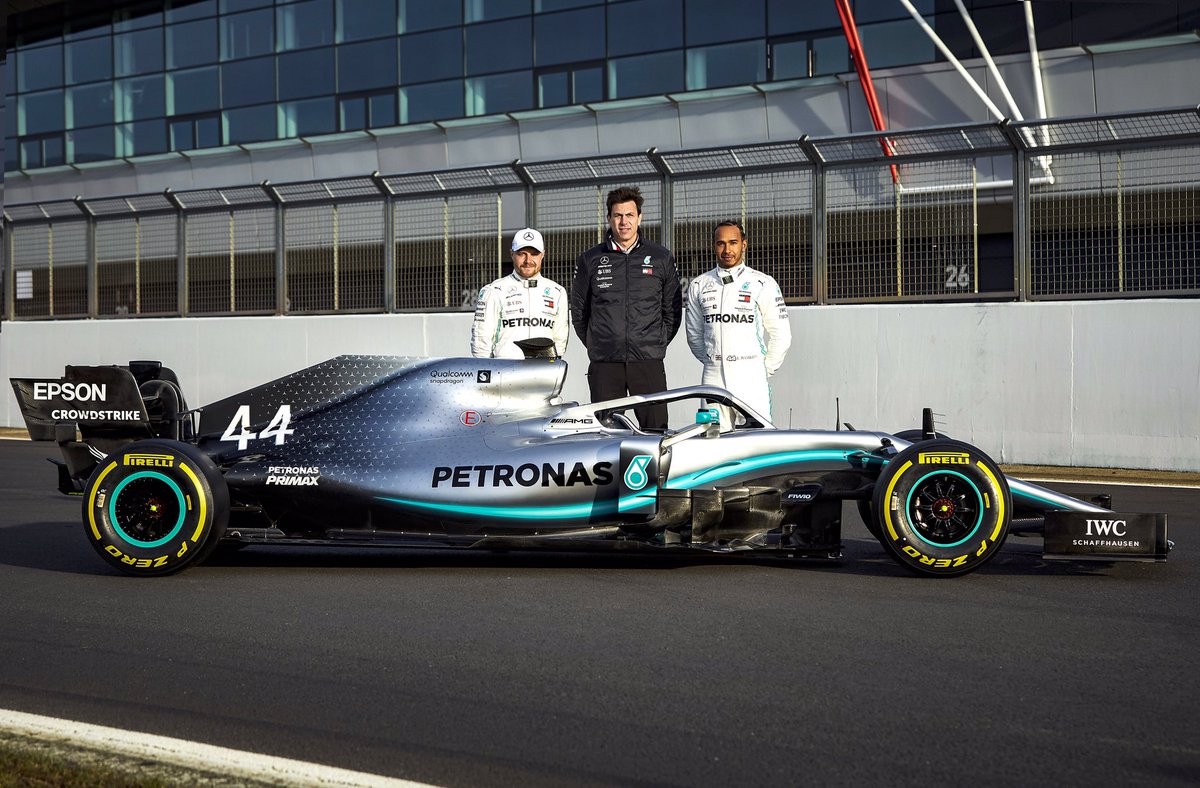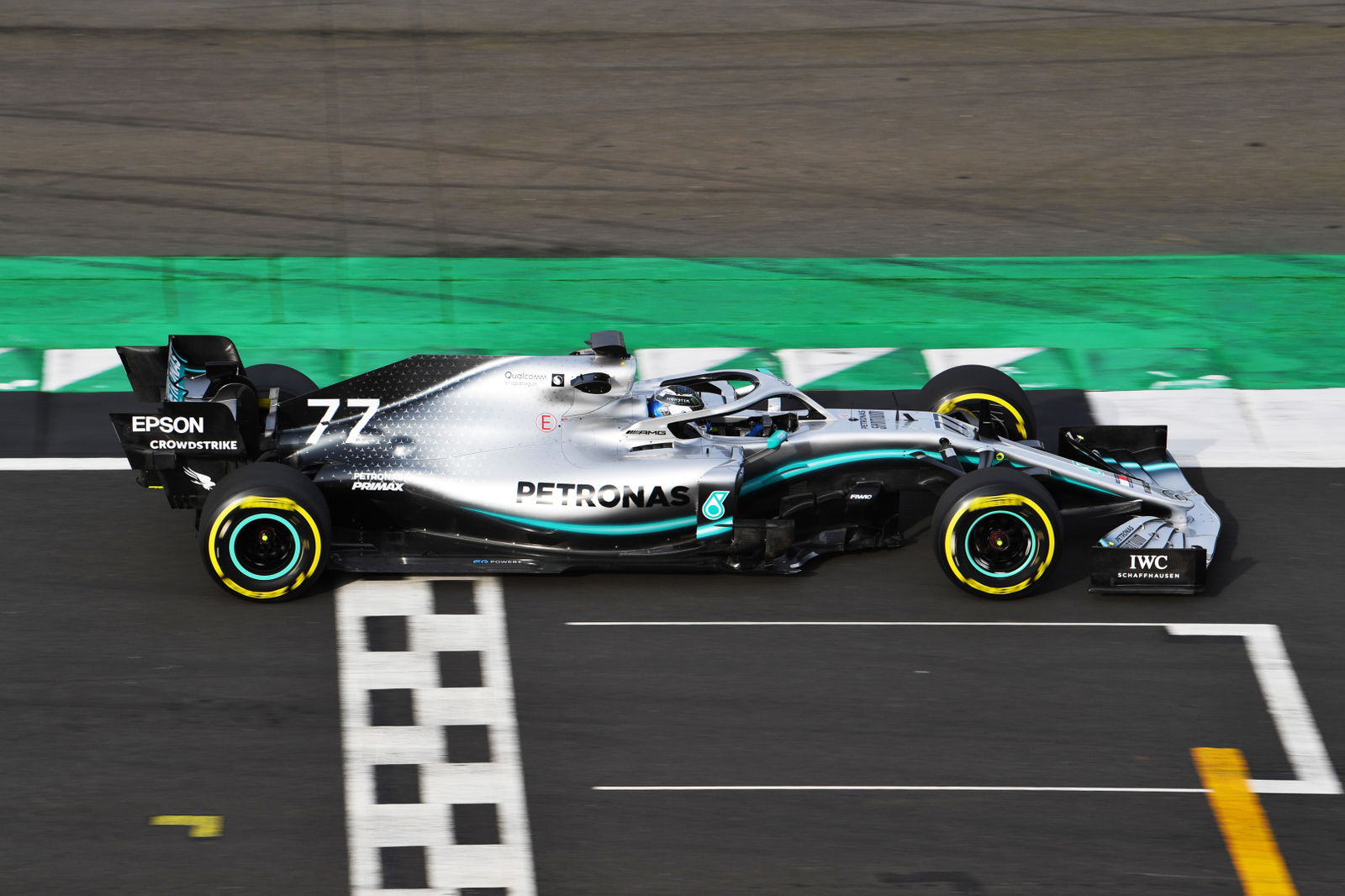Mercedes hunting aero gains with cooling tweaks to latest F1 engine
Mercedes’ new Formula 1 engine has been designed with tweaked cooling architecture in a bid to make further aerodynamic gains in 2019.
The reigning world champion squad launched its latest F1 car at Silverstone on Wednesday, with Lewis Hamilton hailing a “smooth” first run in the W10 as Mercedes conducted a shakedown test.

Mercedes’ new Formula 1 engine has been designed with tweaked cooling architecture in a bid to make further aerodynamic gains in 2019.
The reigning world champion squad launched its latest F1 car at Silverstone on Wednesday, with Lewis Hamilton hailing a “smooth” first run in the W10 as Mercedes conducted a shakedown test.
Mercedes continued power unit development throughout the winter in a renewed push to maintain its supremacy at the top of F1’s pecking order, describing the work as an “evolutionary process” in the hunt for improved performance and reliability.
Andy Cowell, managing director of Mercedes’ F1 operations, said: “We’ve made changes to the cooling architecture of the power unit, which will hopefully provide an aerodynamic benefit on the car and also provide an efficiency benefit on the power unit - so, hopefully it's a win on both the chassis and on the power unit.
“Right at the heart of the power unit is the conversion of fuel into heat release in the combustion chamber, and the useful work out of the crankshaft. We have made steps on the combustion efficiency and on the ERS system.
“The marriage between the turbocharger assembly with the MGU-H, the inverter, the cells and the MGU-K: that whole system is now capable of operating more efficiently and helping with energy deployment through a race.”
As well as the introduction of new aerodynamic regulations for 2019, fuel restrictions have also been tweaked, with the allowance being increased by 5kg to 110kg in the hope of improving the quality of racing and enabling drivers to run their engines at full power throughout the entire duration of races.

Cowell said the changes have placed greater importance on producing an efficient engine for the upcoming season.
"If you have got an efficient engine with efficient aerodynamics and you are prepared to do a little bit of lift and coasting, then you have the opportunity to start the race at less than 110kg," he explained.
"For every 5kg of weight you save, it's about two tenths of a second a lap quicker, so there is a natural reward to starting the race a little bit lighter.
“There is still a competitive edge from making an efficient car - both power unit and aerodynamics - and racing smartly to make sure that you have good pace at the start of the race as well as through the race."


